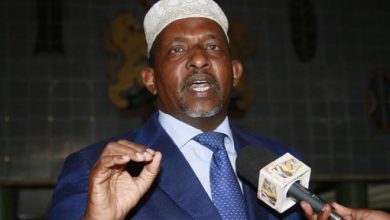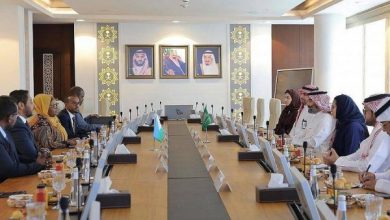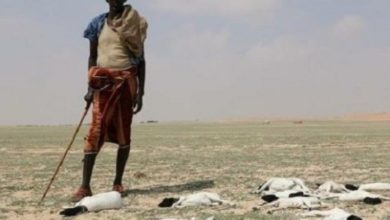Kenya Provides Facts On Somalia Maritime Dispute To UN, African Councils
The Ministry of Foreign Affairs has drawn the attention of United Nation and African Union Security Councils to the unfolding maritime border dispute between Kenya and Somalia.
The Ministry of Foreign Affairs has drawn the attention of United Nation and African Union Security Councils to the unfolding maritime border dispute between Kenya and Somalia.
MFA Cabinet Secretary Monica Juma told Capital FM News on Wednesday her ministry had briefed ambassadors of nations with membership at the United Nations Security Council and the African Union Peace and Security Council in a bid to provide clarity on the matter.
We briefed them on the situation between ourselves and Somalia, provided the facts to both councils and to draw their attention to the situation,” she said.
Among foreign envoys who attended the meeting with top officials of the Foreign Ministry, last Friday included Britain’s Nic Hailey and France’s Aline Kuster-Manager.
Ababu Namwamba, the Chief Administrative Secretary in the Foreign Ministry had said Kenya’s territorial integrity was non-negotiable adding the envoys were assured the country’s “unimpeachable pedigree as an epitome of good neighborliness.”
CS Juma, however, said on Wednesday the ministry was open to negotiation to find an amicable solution to the maritime dispute that recently sparked a diplomatic tiff between Kenya and Somalia.
Kenya dramatically summoned its diplomat in Mogadishu on February 16 after Somalia allegedly auctioned oil and gas blocks located in a 62,000 square miles triangle subject to a boundary delimitation case lodged at the International Court of Justice (ICJ) on August 28, 2014.
The contested area has four of the 24 oil blocks that have traditionally been under Kenya’s Exclusive Economic Zone until Somalia’s legal challenge in 2014.
“We are committed to resolving any disputes in a negotiated manner and we’re hopefully that we’ll find the solution to the problem between ourselves and our brothers next door because our destinies are interlinked,” CS Juma said.
The apparent selling of oil blocks in the disputed area at a London-auction in February 7 for prospective exploration angered Nairobi, the Foreign Affairs Principal Secretary Macharia Kamau terming the move “unparalleled affront and illegal grab at the resources of Kenya.”
“This outrageous and provocative auction deserves and will be met with a unanimous and resounding rejection by all Kenyans as well as all people of goodwill who believe in the maintenance of international law and order and the peaceful and legal resolution of disputes,” he had said adding that Somalia’s actions were “tantamount to an act of aggression against the people of Kenya and their resources.”
Speaking on Wednesday, CS Juma said Kenya had received positive responses from countries the foreign office engaged on the matter.
“The message we’ve received from across the world is an encouragement to resolve the matter amicably and therefore this is the process that we would prefer,” she said.
Kenya had challenged the admissibility of Somalia’s case at the ICJ in September 2016 on grounds that the court lacked jurisdiction to entertain the application.
ICJ, however, dismissed the objection in February 2017 clearing the way submissions by the two parties.
The court fixed June 18, 2018, as the date by which Somalia was to file its submissions in court with Kenya given until December 18, 2018, to file its rejoinder to Somalia’s written pleadings.
Somalia has anchored its case on Article 15 of the Convention of the Law of Sea adopted in 1982, Kenya said the disputed area was in fact under its jurisdiction before the convention was enacted.
Somalia wants the sea border extended along the land border, a plea which if granted could limit Kenya’s access to high season its Indian Ocean shore technically rendering the country landlocked.





